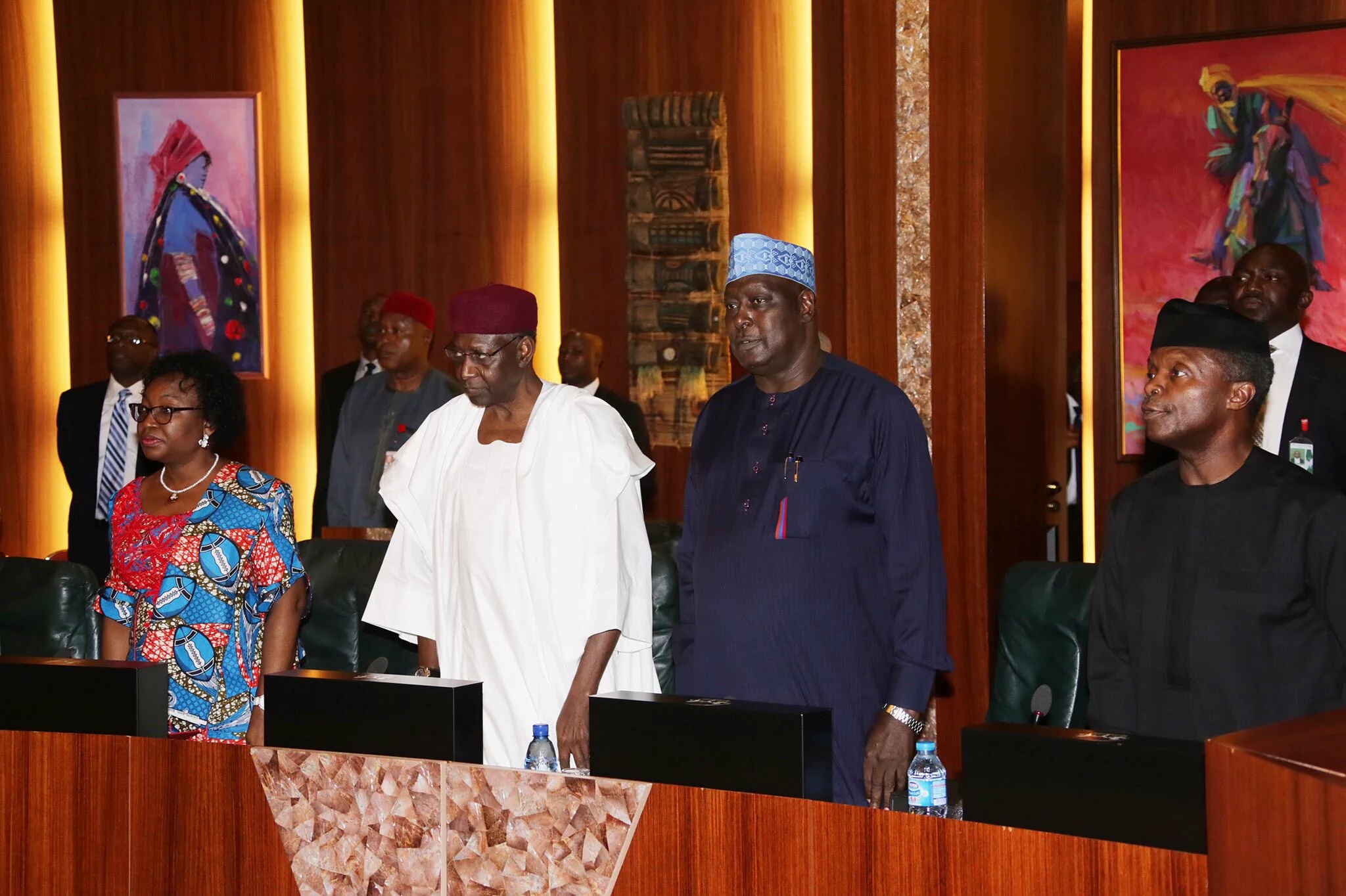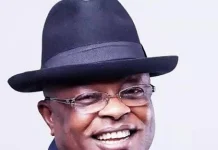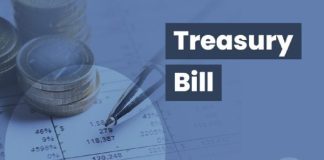In the face of current economic recession in the country, some Ministries, Departments and Agencies (MDAs) of the Federal Government will have their budgetary allocation for capital projects cut significantly next year.
President Muhammadu Buhari disclosed this yesterday at a cabinet retreat on the economy and budget held at the presidential villa, Abuja.
The retreat, with the theme, “Building Interministerial Synergy for Effective Planning and Budgeting in Nigeria”, was organised by the office of the Budget and National Planning.
The president stated that because of the need to focus on identified key priorities, some ministries might get significantly less capital allocation than they received in 2016, while others might get significantly more.
“Let me inform you that because of the need to focus on our key priorities, some ministries may get significantly less capital allocation than they received in 2016, while others may get significantly more,” he stated.
“You may notice that some key non-spending agencies, such as the Infrastructure Concession Regulatory Commission (ICRC), the Bureau of Public Enterprises (BPE), the National Sovereign Investment Authority (NSIA) and the National Pension Commission (PENCOM) are participants at this retreat.”
“This deliberate inclusion underscores the commitment of this administration to leverage on private sector resources, through Public Private Partnerships (PPP) and other arrangements, to augment the scarce budgetary resources at our disposal and to accelerate investments in building critical infrastructure.”
“Indeed, the challenges we face in the current recession require ‘out-of-the box thinking, to deploy strategies that involve engaging meaningfully with the private sector, to raise the level of private sector investment in the economy as a whole.”
Speaking at the event, Buhari explained that the programme was to assist the Federal Government commence the process for the preparation of the 2017 budget. Government expects to deliberate with key players in the private sector at the retreat to come up with a set of prioritised projects that would feature in next year’s fiscal planning for implementation.
The retreat will also serve as an opportunity to have a general overview of the economy and discuss the framework for the 2017 Budget, its key priorities and deliverables.
He explained that the programme “was in line with the administration’s determination to lay a solid foundation for growth and development as outlined in the Strategic Implementation Plan (SIP) of our Change Agenda.”
The president also challenged participants at the retreat to formulate pragmatic proposals on how best to tackle Nigeria’s economic recession. Buhari particularly urged the cabinet members of his administration to learn from the experiences of the retreat’s facilitators and resource persons to ensure speedy economic recovery.
He noted that the retreat had become imperative because over the years, there had been a mismatch between planned targets and budgetary outcomes at the national and sectoral levels.
According to him, the MDAs have not also benefited significantly from working together and building consensus around common national objectives, saying that this has impeded growth and development of the country “It is in this context that this retreat has been designed to discuss issues around the state of the economy and build consensus among cabinet members and top government officials.
“The retreat will also serve as an opportunity to have a general overview of the economy and discuss the framework for the 2017 Budget, its key priorities and deliverables. “This retreat is coming at a critical time in our economic history, when the Nigerian economy is in a recession, with significant downturn in performance in various sectors.
“It is with regard to the importance of this retreat that I decided to sit through the first part of the session to listen to the views from experienced economists and development experts on how best to implement our plans to rid the country of its oil dependence and to diversify the economy and bring the country out of the current economic recession.”
Buhari also expressed the hope that the level of private investment would grow as his administration had embarked on reforms meant to make it easier to do business in Nigeria. He said that the reforms were being introduced under the auspices of the Presidential Committee on Ease of Doing Business.
The president reiterated the determination of his administration to continue to strategise on how best to turn the current challenges into opportunities for the nation and especially for the “vibrant youth on whose shoulders lies the future of this nation”.
He said the Federal Government had embarked on measures and actions that would open up the opportunities in the power, housing, agriculture, mining, trade and investment, Information Communication Technology (ICT), tourism, transport and other sectors. He, therefore, reassured the nation’s teeming youths that the government would remain steadfast in its effort to ensure greater progress and prosperity for them.
Buhari stressed the need for the support and cooperation of the private sector, domestic and foreign investors, the states and local governments, the National Assembly and the judiciary, as well as all wellmeaning Nigerians in the task of transforming the country.
“While government is taking the lead in the task of repositioning our economy for change, we cannot achieve this completely by ourselves. “We are confident that working together, we shall succeed,” he said. The president participated in the opening session of the event.
There were four sub-themes for discussion all centred on huge investment on infrastructure as a way out of the current economic recession.
In an interview with State House Correspondents, Minister of Finance, Kemi Adeosun, noted that government was sympathetic with the hardship Nigerians were going through and was taking appropriate steps to get the economy back on track. She said: “We sympathise with the people of Nigeria, but what is more serious is our intentions, our resolve and plans to turn it around.
We have said it before that we knew we were going to go into a very difficult period. “We have not anticipated the impact of the much awaited crisis, which of course is built on our revenue, which is down significantly. We have a credible plan and that plan is based on the need to invest in our infrastructure and each of the experts spoke on that, that it was the only solution for Nigeria to take us out of this situation and we are working on that.”
Resource persons drawn mostly from the private sector included Bode Agusto, Bismark Rewane, Frank Nweke, Obadaye Mailafia and Ayo Teriba. The retreat is being attended by all cabinet members, governor of the Central Bank of Nigeria (CBN), permanent secretaries, and directors from the MDAs.













